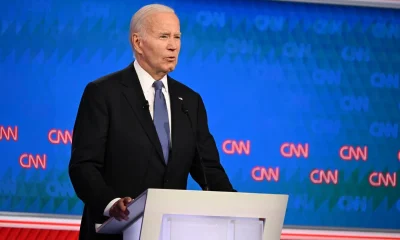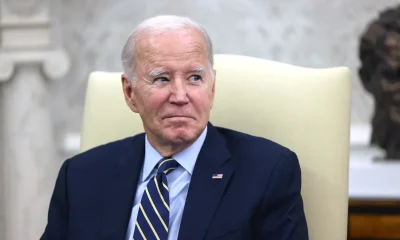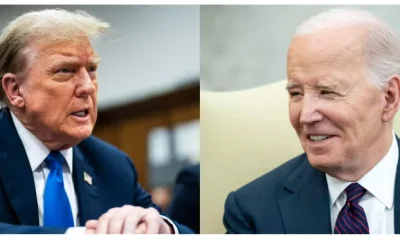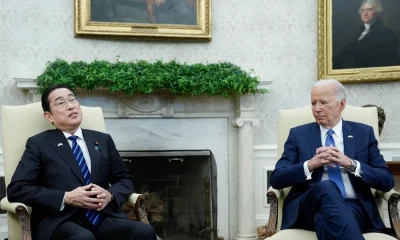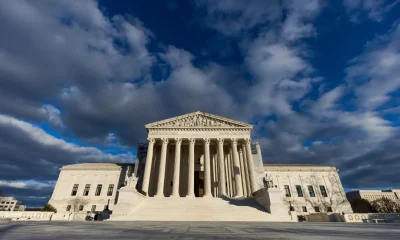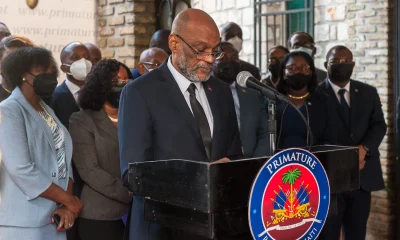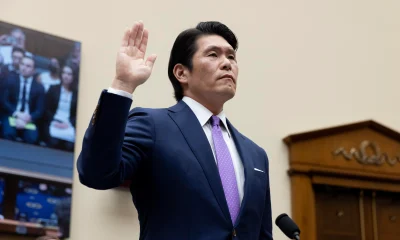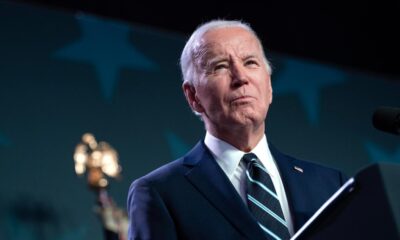International
Biden approves the speech of the Democratic senator who called for elections in Israel
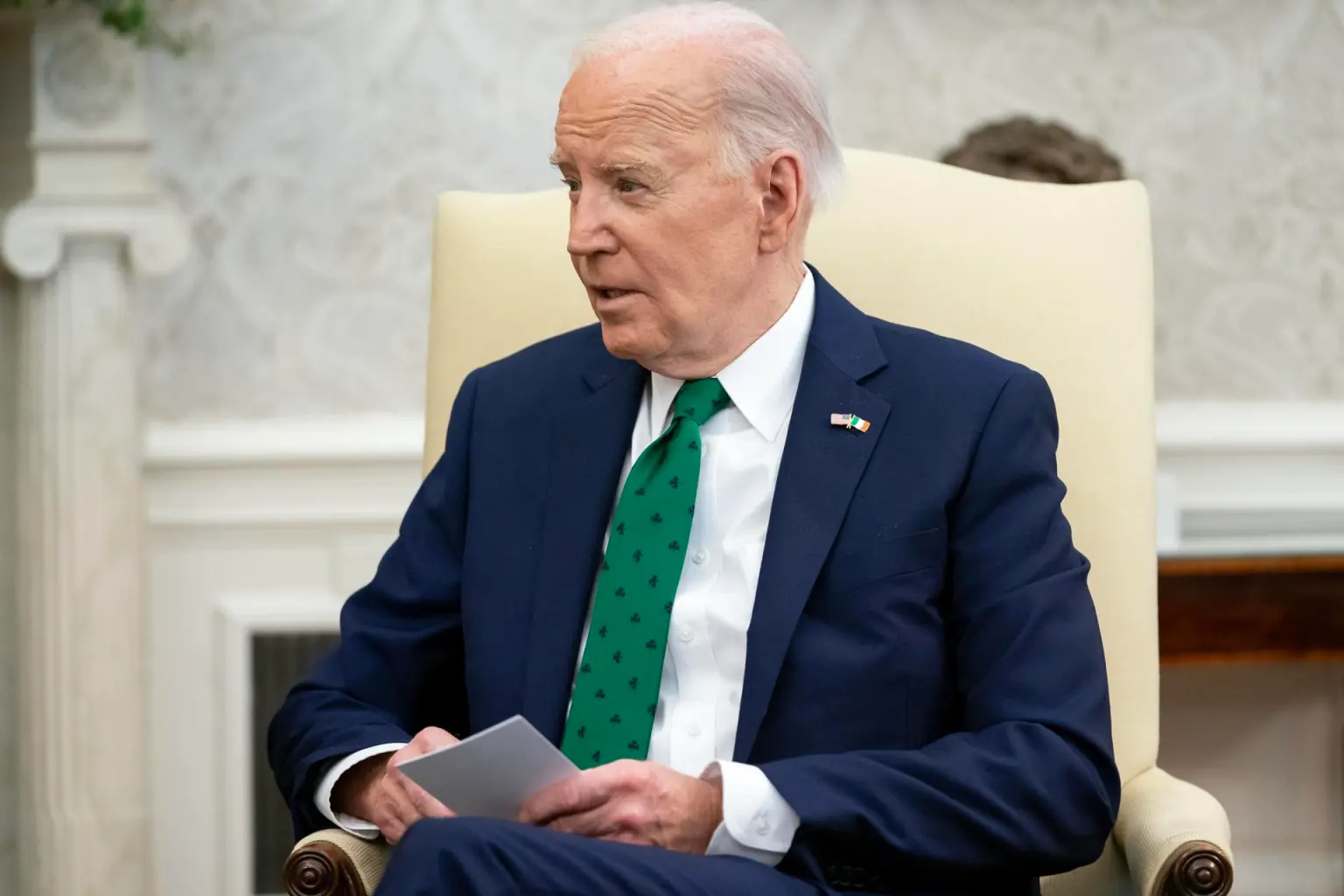
The President of the United States, Joe Biden, expressed on Friday his approval of the speech of the leader of the Democrats in the Senate, Chuck Schumer, who called for elections in Israel considering that his Prime Minister, Benjamin Netanyahu, is an “obstacle to peace.”
“He gave a good speech and I think he expressed a serious concern shared not only for him, but for many Americans,” Biden told the press when he started a meeting in the White House with the Prime Minister of Ireland, Leo Varadkar.
The US president also confirmed that Schumer had previously informed the White House that he was going to deliver that speech before the plenary of the Senate.
Schumer, the first Jew to occupy the position of leader of the majority of the Senate, accused Netanyahu on Thursday of being one of the biggest “obstacles to peace” in the region and called for elections to be held in Israel.
It is the most critical message of a senior leader of the Democratic Party against the Israeli government since the beginning of the offensive against the Gaza Strip, which started after the Hamas attack on Israel on October 7
The Likud party, led by Netanyahu for decades, responded to Schumer that Israel “is not a banana republic, but an independent and proud democracy.”
The relationship between Netanyahu’s far-right government and Joe Biden’s Democratic Administration is going through a moment of tension due to Israel’s blockade of the entry of humanitarian aid by land into the Gaza Strip.
The United States supports Israel’s war against Hamas by sending weapons, but is expressing increasing frustration with the humanitarian consequences of the offensive.
There is also increasing concern in the Democratic Party about the impact that the Gaza War may have on the November U.S. presidential elections, in which Biden will seek his re-election.
During the meeting with Biden, the Taoiseach (Irish Prime Minister) claimed the need for “a ceasefire as soon as possible” in Gaza that allows the entry of food and medicine, as well as the exit of the hostages from Hamas.
“We need to talk about how we can make this happen and also move towards the two-state solution,” Varadkar added.
The Irish Prime Minister met with Biden in compliance with the tradition of visiting the United States on the occasion of St. Patrick’s Day, which will be celebrated next Sunday.
International
Rubio rules out 2028 presidential bid if Vance runs

U.S. Secretary of State Marco Rubio said he would not seek the presidency in 2028 if current Vice President JD Vancedecides to run as the Republican nominee to succeed President Donald Trump.
“If JD Vance runs for president, he will be our candidate, and I will be one of the first people to support him,” Rubio said in an interview with Vanity Fair, in which he appeared alongside other senior members of the presidential cabinet.
Rubio, 54, and Vance, 41, are widely viewed as two of the leading Republican figures who could headline the party’s ticket in the 2028 election. Under the U.S. Constitution, Trump is barred from seeking another term after completing two presidential mandates.
In a lighthearted moment during the interview, Vance jokingly offered photographers $1,000 if they managed to make him look better than Rubio in the photos. Both leaders have received public backing from Trump, who last October floated the idea of a joint ticket featuring Rubio and Vance, without clarifying who would lead it.
“I think that if they ever teamed up, they would be unstoppable. I don’t think anyone would run against us,” Trump said at the time.
White House Chief of Staff Susie Wiles, who also took part in the interview, confirmed that Trump does not intend to violate the 22nd Amendment, which prohibits a third presidential term, though she acknowledged that the president is “having fun” with speculation about a possible return to office.
Rubio, the son of Cuban immigrants, served as a Republican senator from 2010 to 2025. He sought the party’s presidential nomination in 2016 but was defeated by Trump after a bruising primary contest. His name was floated as a potential vice presidential pick in 2024, but Vance ultimately secured the spot. After taking office, Trump appointed Rubio as secretary of state, making him the first Latino to hold the position.
International
Authorities search for armed and dangerous suspect in fatal Brown University attack
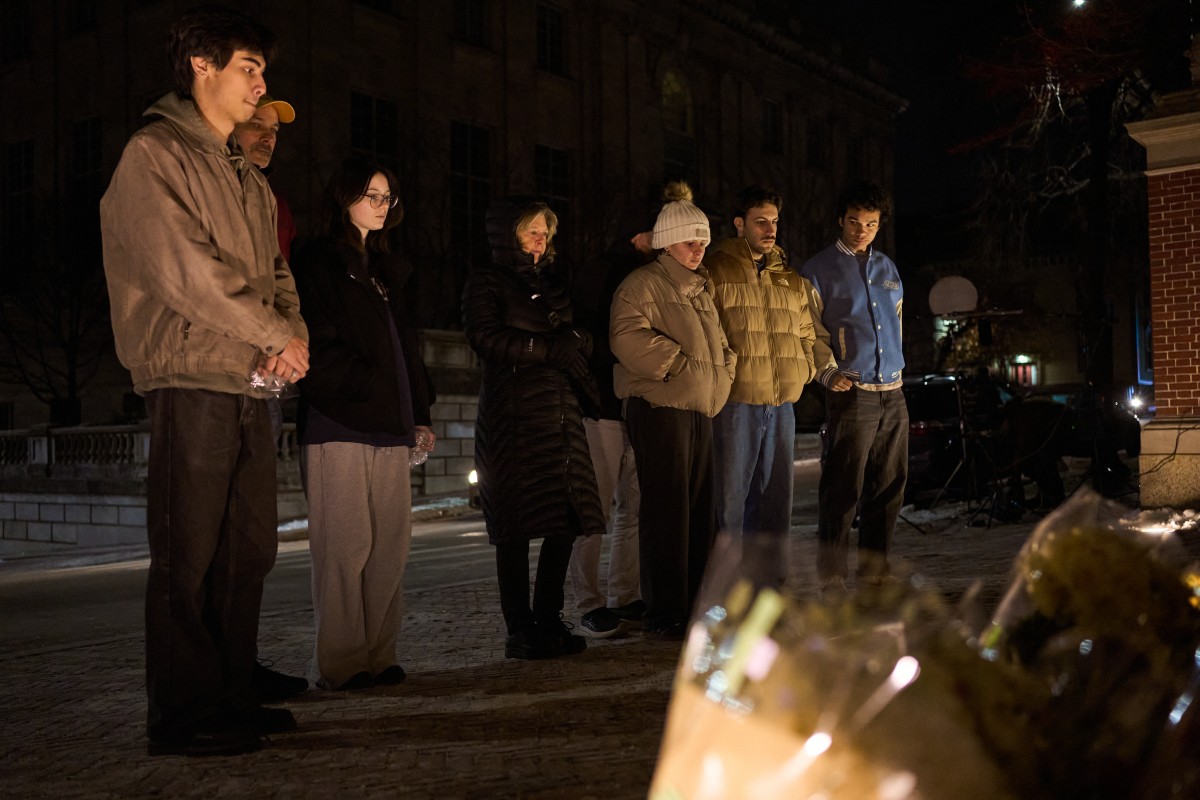
According to the statement, investigators are “seeking the public’s help to identify and speak with an individual” who was seen “near” the suspect at the time of the attack.
The Providence Police Department in Rhode Island released three photos of the person of interest, whose face has been blurred. In the images, the individual is wearing navy blue clothing, what appears to be a green hood, and carrying a light-colored backpack.
Earlier, authorities had released several photos and videos of a suspect described as “approximately 5 feet 8 inches tall, with a stocky build,” dressed in dark clothing, with their face covered by a surgical mask and wearing a beanie. The suspect’s identity remains unknown.
Authorities are offering a $50,000 reward for any information leading to the identification, arrest, and conviction of the person responsible for the killings, who is considered armed and dangerous.
The gunman opened fire on Saturday at Brown University’s engineering and physics building, where exams were being held, killing students Ella Cook and Mukhammad Aziz Umurzokov. The names of the nine people injured have not been released.
International
Police investigate deaths of Rob Reiner and wife as apparent homicide
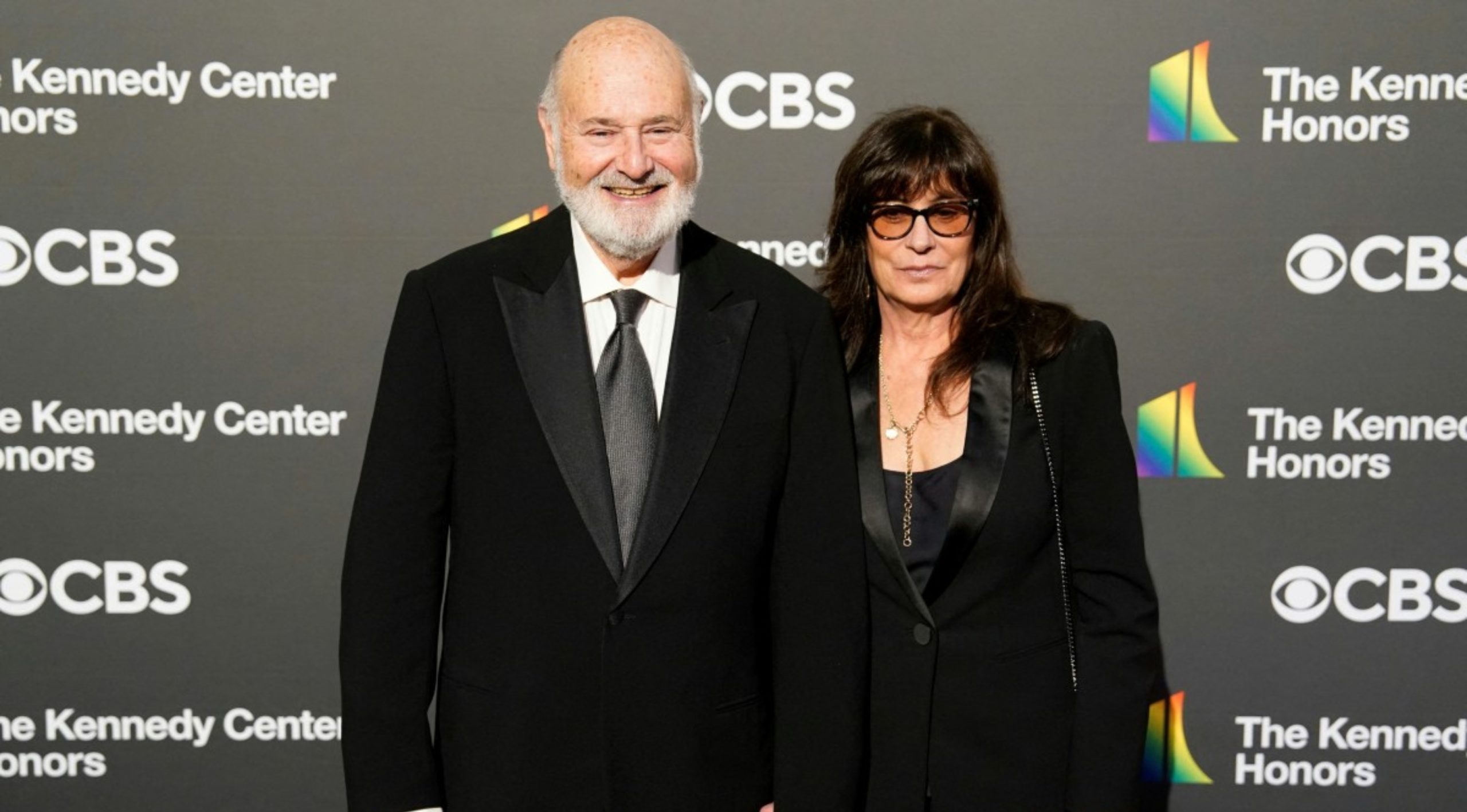
The Los Angeles Police Department (LAPD) is investigating the deaths of Hollywood actor and filmmaker Rob Reinerand his wife as an “apparent homicide,” amid a wave of tributes to the director of classics such as When Harry Met Sally.
According to U.S. media reports on Sunday, Rob Reiner and Michele Singer Reiner were found dead at their Los Angeles mansion with what appeared to be stab wounds.
Several political figures shared messages of condolence following the reported deaths of the director of A Few Good Menand his wife.
While the LAPD did not officially confirm the identities of the victims, it stated that homicide detectives were dispatched to the Reiner residence.
“At this time, no additional details are available and the investigation into an apparent homicide is ongoing,” the Los Angeles Police Department said in a statement posted on social media.
LAPD Deputy Chief Alan Hamilton told reporters that no arrests have been made and that no individuals are currently being questioned as suspects.
“I’m not going to confirm whether anyone is being questioned at this moment or not. We are going to try to speak with as many family members as we can,” Hamilton said.
CNN reported that a family spokesperson confirmed the deaths of Reiner and his wife.
California Governor Gavin Newsom, former U.S. President Barack Obama, and former Vice President Kamala Harrisissued statements expressing their condolences.
-

 Central America3 days ago
Central America3 days agoPanama seizes over three tons of drugs hidden in Caribbean port container
-

 International3 days ago
International3 days agoPolice investigate deaths of Rob Reiner and wife as apparent homicide
-

 International4 days ago
International4 days agoSeveral people shot in attack on Brown University campus
-

 Central America3 days ago
Central America3 days agoOAS urges swift recount in Honduras as election results remain uncertain
-

 Central America1 day ago
Central America1 day agoBukele says AI partnership with xAI will transform public education in El Salvador
-

 Central America1 day ago
Central America1 day agoEl Salvador ranks among top countries in the Americas in fight against organized crime
-

 International4 days ago
International4 days agoU.S. and Mexico Reach Deal to Address Water Deficit Under 1944 Treaty
-

 International8 hours ago
International8 hours agoRubio rules out 2028 presidential bid if Vance runs
-

 Central America8 hours ago
Central America8 hours agoArrests and clashes in Tegucigalpa as vote count continues after Honduras election
-
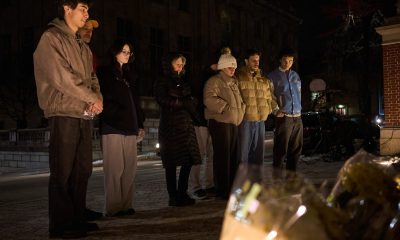
 International9 hours ago
International9 hours agoAuthorities search for armed and dangerous suspect in fatal Brown University attack

























